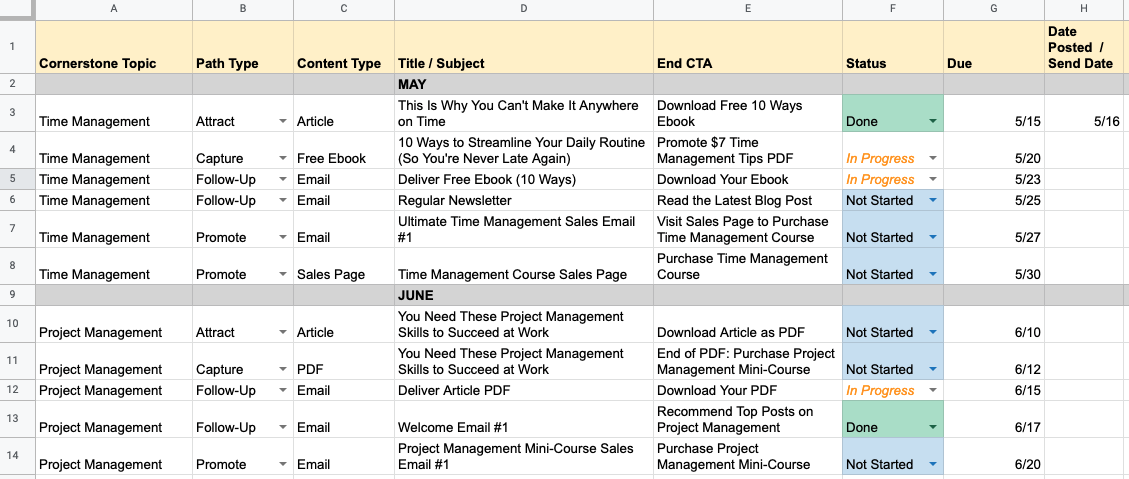5 Steps to Building an Actionable Small Business Marketing Plan

You’re a small business owner, coach, or consultant. You’re just getting started on your marketing or pivoting to a new approach. How do you write a marketing plan? What does it need to include? Here are five steps to creating your small business marketing plan so that it’s actionable and complete.
Do I Need a Marketing Plan for My Small Business?
Here’s how a marketing plan can help you as a small business owner: Not only does it direct your efforts, but it helps any investors or collaborators jump on board with you quickly. You can sketch out an overall vision for how your business will make money and then dial into specific details like campaigns that you’ll use to reach certain goals.
There are a few reasons why it’s difficult to come up with a marketing plan:
- You don’t have a grip on your revenue model. You may have an incredible business idea, but a marketing plan is designed to help you get realistic about where the money you plan to make will actually come from.
- You don’t have a sense of where (or how) you should be marketing or advertising. It can be tempting to pour time or money into lots of channels without really understanding your business or where you’ll get the most traction.
- You’re focused on promotions without having a way to attract potential customers and develop relationships with them. You have flash in the pan ideas that don’t equate to sustainable revenue. If you aren’t establishing your values or targeting the right market, you can’t create relationships that will provide returns for your business.
If you’re having these problems, you’re not alone! These are common reasons why small business owners skip the process of creating a plan and then have to circle back around and put pen to paper (or fingers to keyboard).
The five steps we’re about to take will help you tackle these challenges so that you have a clear direction for your business and how you’ll use marketing to generate sales.
5 Steps to Building an Actionable Small Business Marketing Plan
There are three fundamental elements of your business that you need to identify clearly up front: your mission, market, and message. You need to be as specific as you can with these, because if they aren’t clear, your marketing will go nowhere. They’ll play a big part in your plan, as you’ll see below.

Here are the five steps you need to take to create your marketing plan:
- Define what your business is, your mission, and your key business objectives (reach, revenue, impact).
- Explain the problem you’re solving and what products or services you offer that solve that problem. This includes defining your planned revenue streams and opportunities.
- Identify your closest competitors and what makes your business / offering different from theirs.
- Identify your target market and the channels that provide you the greatest opportunity to reach them.
- Line out specific actions that you can take to reach your target market, build your customer base, and make sales.
You should also consider including the following:
- Any foreseeable expenses.
- Any foreseeable obstacles to hitting your goals.
- Brand assets (present or planned).
- Team and key roles (if needed).
- Key promotions and timelines.
- Your revenue goals and/or five year plan.
Don’t forget that your plan should include your relevant business information, like your business name, logo, key contacts, and any web properties or physical locations.
What’s Next After Creating Your Marketing Plan?
Once you’ve created your marketing plan, you can share it with investors, team members, and contractors to help everyone get on the same page. If you’re a sole proprietor without investors, your marketing plan will give you a sense of what you should focus on and why. With those pieces in place, it’s time to start developing content.
Digital marketing is a content-driven industry. Whether you plan to get leads organically or through advertising, you need compelling copy and content for all your marketing materials. It’s easiest to create content consistently when you have a system. That way, you can stay intentional about what you create and start seeing results (instead of wasting time on materials that won’t produce).

